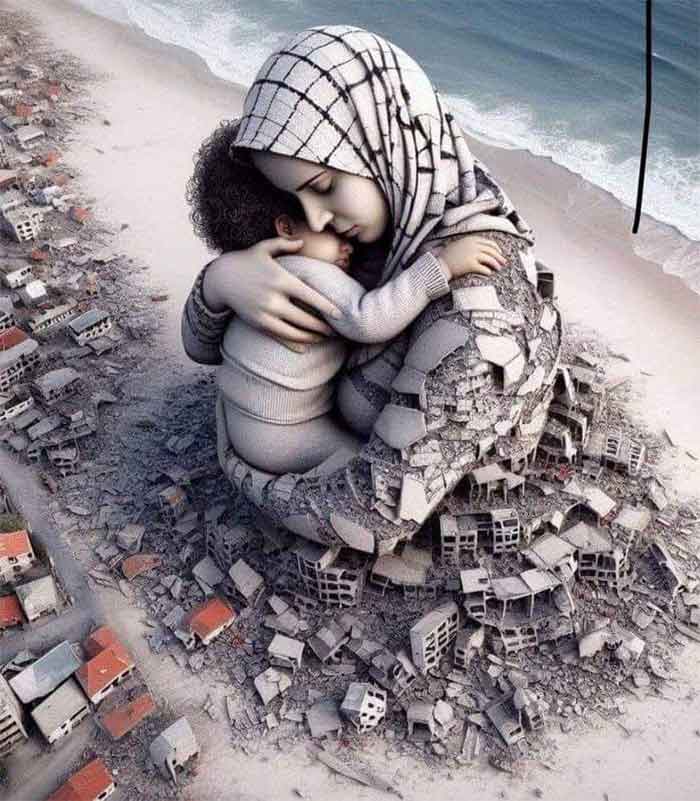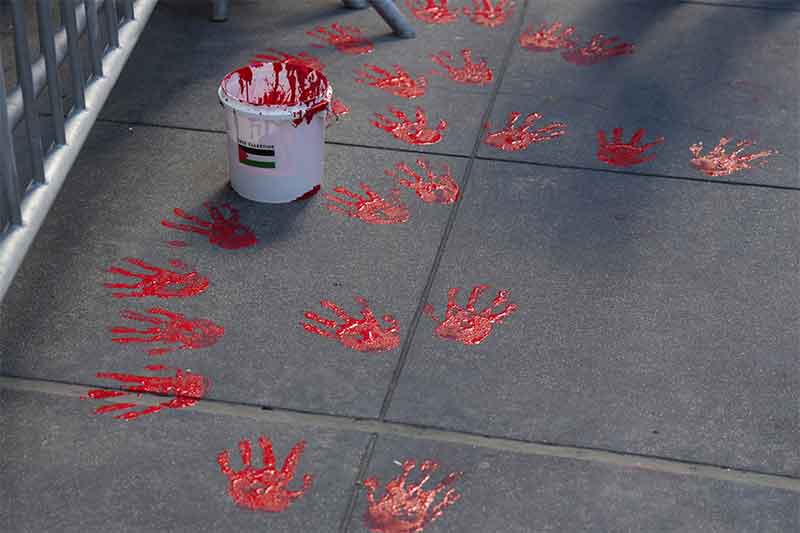
Three eruptions of unintentional poetry plucked from prose works, on topics ranging from homelessness in India to neocolonialism to death.
Three Found Poems
by Walt Gelles
A found poem is a fragment or morsel of prose which—when extracted from a longer prose work and rearranged typographically—stands on its own as a poem. The author of the book or article may not have intended to write poetry, but the excerpted passage, because of its lyrical or other qualities, achieves the quality of verse. Found poems can speak volumes. Here are three found poems (titles added).
Homeless
It is a harsh unforgiving winter each year
for homeless people who survive Delhi’s streets.
Through long foggy nights, bleary-eyed with sleep,
they squat around tiny fires
desperately trying to keep the chill out. Many curl up
together, sometimes under a single thin blanket,
bony bodies pressed against each other,
some along with stray dogs, all sharing body warmth.
But we also encounter the stiff sleeping forms of
single, lonely people, almost frozen in the cold.
Every wintry night leaves behind more bodies—
anonymous, dispensable people…
rickshaw-pullers
balloon-sellers
women thrown out on to the streets by violent spouses
children who have escaped abuse
abandoned old people—
all of whom could not battle any further.
—From Looking Away: Inequality, Prejudice and Indifference in New India by Harsh Mander (Speaking Tiger, New Delhi, 2015), pp. 95-96.
This important book provides a highly revealing look at the social and political realities of contemporary India. Social activist Harsh Mander writes: “There are still no shelters of any kind for more than 90 per cent of over a hundred thousand men, women and children in the nation’s capital for whom the open sky is the only roof.” Essential reading.
***
Deep-sea Diver
The breath still comes in little sobs. Sobs like gurgling.
Like gurgling that comes from the diver
as he rises from the seabed,
in his hands the pearls that he holds out
to the white men in the boat,
before the stone tied to his back
drags his body into the depths again,
where he breaks open shells.
Again he shoots up, the fountain of blood—
his scream, and already
the stone has pulled him down,
and so he disappears,
his breath rises in pearls.
From The Snake Tree, a novel by Uwe Timm. Translated from the German by Peter Tegel (Pan Books, 1988).
This edgy, provocative novel deals with collision of cultures and neocolonialism. A well-meaning German engineer is dispatched to rescue a faltering construction project in a South American rain forest, with disastrous results.
Admiring Graveyards
How much I am getting to admire graveyards,
the calm, unfretting, unhoping end of things—
Serene absence of passion—oblivious to sin—
ignorant of the accursed golden hopes that flame at night
and make a man run his legs off and then in the
daylight of experience turn out to be
ingenious traps for the imagination.
If there is a joy of living, I can’t find it.
The future? The future is blue with obligations—new trials—conflicts.
It was a rare old wine the gods brewed for mortals:
Flagons of despair… I am simply a man struggling with a life
that is no more than a mouthful of dust.
—From a (prose) letter by Stephen Crane, author of the novel The Red Badge of Courage, to Nellie Crouse, a woman from Akron, Ohio whom he loved; letter dated March 1 and 18, 1896. Crane was also a visionary poet, far ahead of his time, and some of his prose is very lyrical. I made a couple of punctuation changes and changed one “am I” to “I am”. In Stephen Crane: Letters edited by R.W. Stallman and Lillian Gilkes. New York University Press, 1960.
Both The Snake Tree and Stephen Crane, Letters can be borrowed, free and legal, from OpenLibrary.org. This online library has roughly 250,000 ebooks that can be downloaded onto your computer for a two-week loan, plus more than a million ebooks to read online. Topics range from current events, history and politics to fiction, poetry, art, science.
Further Reading:
“India’s affordable housing plan won’t fix homelessness, say campaigners”, Rina Chandran. Reuters, January 30, 2017 (http://www.reuters.com/article/us-india-landrights-housing-idUSKBN15E1AN)
“Delhi is homelessness capital with three districts among India’s worst six”, Harry Stevens. Hindustan Times, March 24, 2017 (http://www.hindustantimes.com/delhi-news/homelessness-census-data-shows-three-of-india-s-worst-six-districts-in-delhi/story-xwTd5kl2R3eEFs4TJyLOoM.html)
“Shelter for Homeless: Just a handful under the roof”, Shalini Nair. Indian Express, February 25, 2017 (http://indianexpress.com/article/india/shelter-for-homeless-just-a-handful-under-the-roof-4542423)
India Homeless Resource Network. www.ihrn.org.in
Walt Gelles has published articles and political verse online.

















































